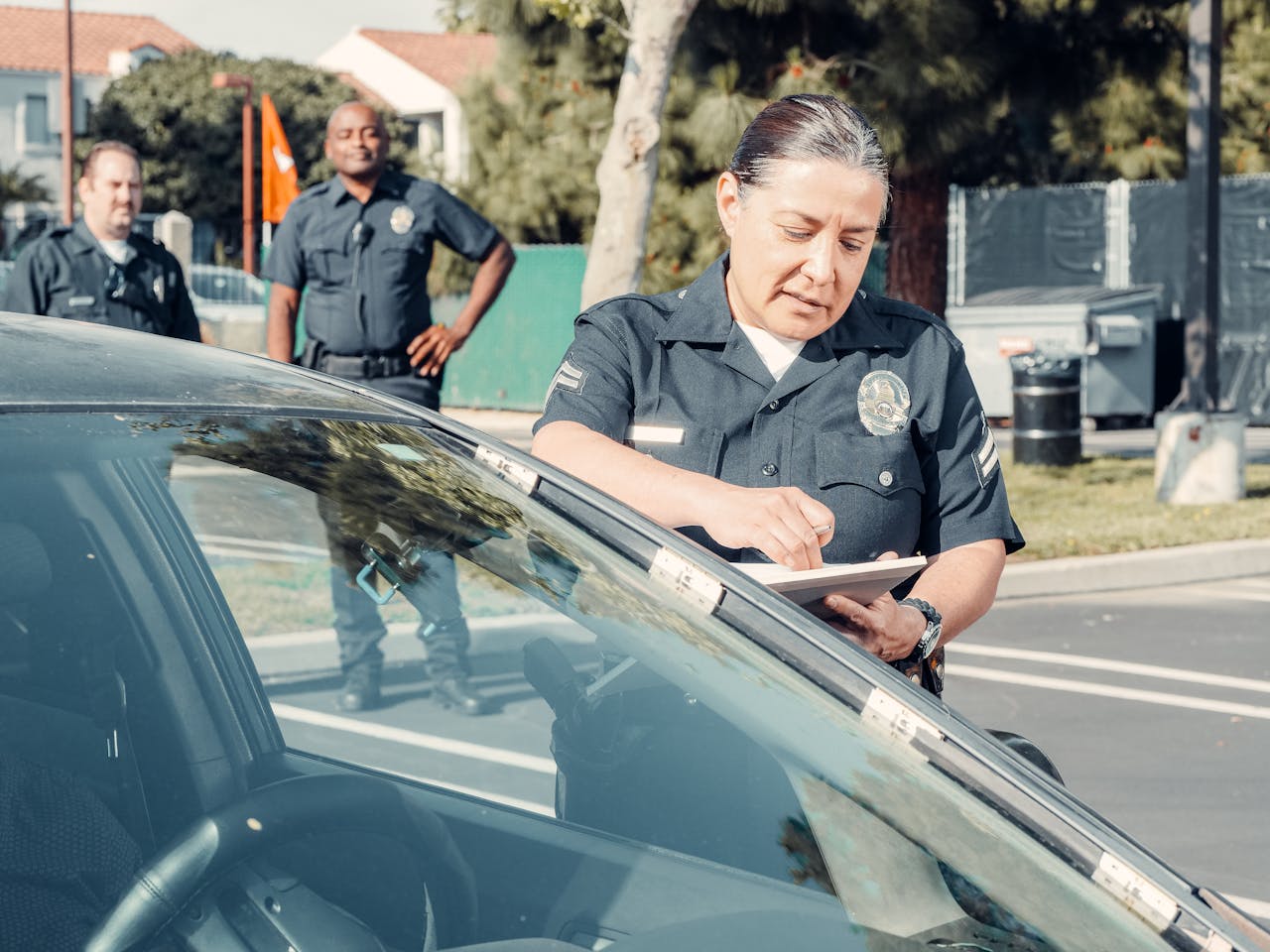Why Traffic Tickets Matter
We’ve all been there: the sudden flash of lights in the rearview mirror, the pit in your stomach, and the realization that something went wrong. Whether it’s speeding, running a red light, or forgetting to signal, a traffic stop is one of the most common interactions citizens have with law enforcement.
Recently, I observed a familiar scene on a busy city street: a police officer standing beside a vehicle, pen in hand, issuing a traffic ticket. The driver, calm but concerned, remained seated as the officer explained the violation. While this may seem like a simple transaction, there’s more happening in that moment than meets the eye.
The Role of Traffic Enforcement
Traffic laws exist for a reason safety. Speed limits, signals, and lane rules are designed to protect everyone on the road. When those rules are broken, even unintentionally, consequences follow. Officers are tasked not only with enforcing these laws but also with educating drivers and preventing accidents.
A traffic ticket isn’t just a penalty it’s a reminder. It signals the need to pay closer attention, to drive more carefully, and to respect the shared rules of the road.
What to Expect During a Traffic Stop
If you’re ever pulled over, it’s important to know your rights and responsibilities:
- Stay calm and pull over safely.
- Keep your hands visible, preferably on the steering wheel.
- Wait for the officer to approach and ask for documentation.
- Be polite and cooperative.
- Ask questions respectfully if you don’t understand the violation.
Remember, most officers are simply doing their job. Their priority is not to punish, but to protect.
Can You Dispute a Ticket?
Yes. If you believe a ticket was issued in error, you have the right to contest it in court. Collect any relevant evidence (photos, witness statements, etc.) and attend your hearing prepared. Many jurisdictions also offer online options or traffic school to reduce points on your license.
The Bigger Picture
Traffic stops may feel inconvenient or intimidating, but they serve a greater purpose: promoting safer roads for everyone. They also remind us of a broader truth that accountability matters, and that even minor infractions can have major consequences when it comes to public safety.
So, the next time you see an officer writing a ticket, remember it’s not just about the fine. It’s about a culture of responsibility and care on the road.


